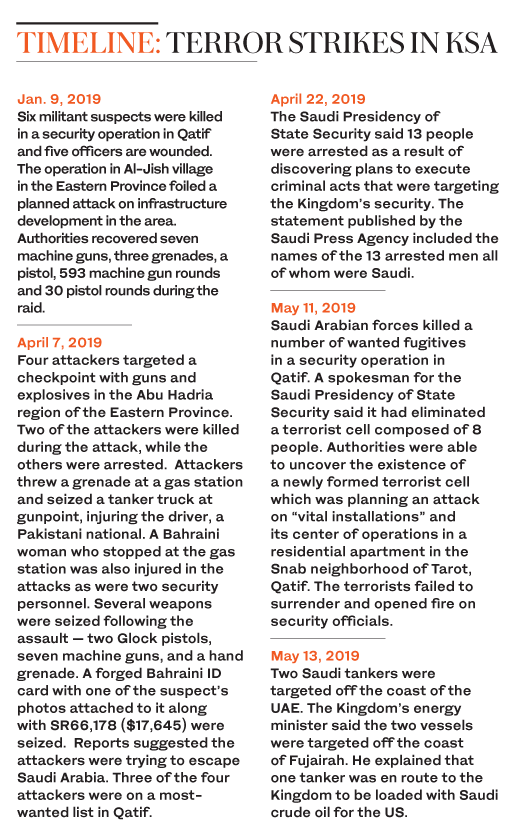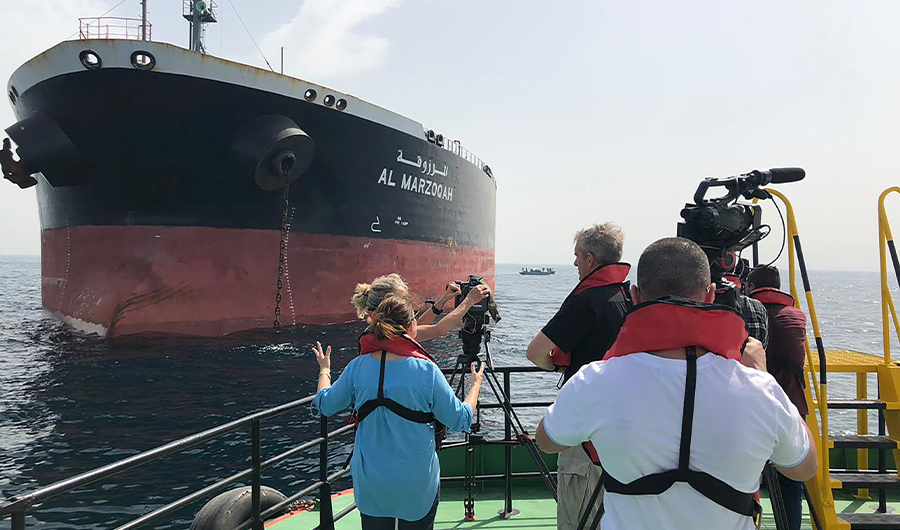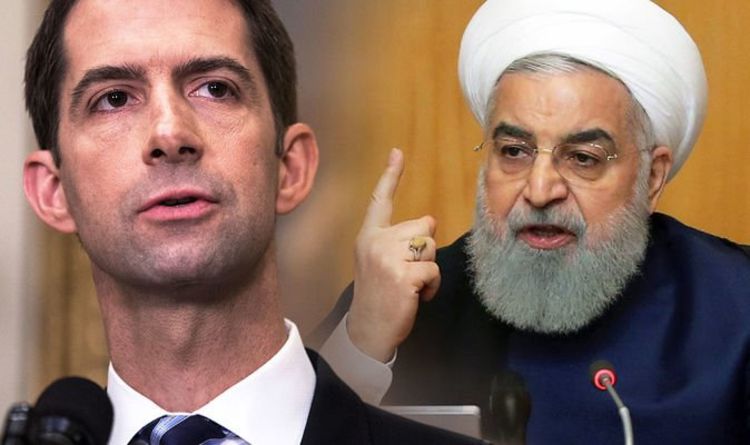Tanker attacks near UAE expose weaknesses in Gulf Arab security
May 15, 2019
by Stephen Kalin, Alexander Cornwell, Dahlia Nehme
RIYADH/DUBAI (Reuters) - Attacks on Saudi tankers and other vessels off the coast of the United Arab Emirates this week expose vulnerabilities in the security of a key oil-shipping route amid rising tensions between the United States, Iran and Gulf Arab states.
The operation near the Strait of Hormuz appeared designed to test the resolve of the United States and its Sunni Muslim allies without triggering a war, after Washington tightened sanctions on Iran and beefed up its military presence nearby.
The UAE has not characterized the sabotage or blamed anyone, but U.S. national security agencies believe proxies sympathetic to or working for Iran may have been behind it, a U.S. official has said. Tehran has distanced itself from the incident, which no one has claimed.
“This is a pin-prick event, a little needle-like jab at the maritime trade going into the Strait of Hormuz,” said Gerry Northwood, chairman of risk management and security firm MAST.
The attack took place off Fujairah emirate, just outside the Strait, a narrow waterway separating Iran from the Arabian Peninsula where a fifth of global oil consumption passes from Middle East producers.
Two days later, Saudi Arabia said armed drones had hit two oil pumping stations in the kingdom, an attack claimed by the Iran-aligned Houthis in neighboring Yemen.
The U.S. Navy’s Bahrain-based Fifth Fleet is tasked with protecting commercial ships in the area. The British and French navies maintain a presence, while Saudi Arabia and the UAE have high-tech naval capacities.
But Gulf Arab states are struggling to build an effective system to defend against drones and low-tech sabotage attempts, Eurasia Group said in a note.
“There are hundreds, if not a few thousand, small boats moving in that area every day. Many of these vessels are smugglers operating between Iran and the Gulf states,” said Norman Roule, a retired senior U.S. intelligence officer.
“This will make it difficult, but not impossible, to trace any small vessels which may have been involved in the operation.”
Port security in Dubai, the region’s trading hub, was unchanged, a spokeswoman for the government media office said.
But the UAE may still face pressure to increase patrols.
“The UAE needs to send a signal to reassure the shipping industry that Fujairah is safe and this is not going to happen again,” a Western diplomat in Abu Dhabi said.
Navigational data indicated at least some of the ships may have been within nine nautical miles of the shore, well within UAE territorial sea. Saudi Arabia’s energy minister has said at least one of them was further out, in the UAE’s exclusive economic zone where international law largely applies.
Reuters and other journalists taken on a tour off the Fujairah coast saw a hole at the waterline in the hull of a Norwegian ship, with the metal torn inwards. A Saudi tanker they viewed showed no sign of major damage.
Maritime security sources told Reuters that images suggest the damage was likely caused by limpet mines attached close to the waterline with less than 4 kg of explosives. One source said the level of coordination and use of mines were likely to rule out militant groups such as al Qaeda.
“It’s not those guys seeking publicity, it’s someone who wants to make a point without necessarily pointing in any given direction,” said Jeremy Binnie, Middle East and Africa editor for Jane’s Defence Weekly. “It’s below the threshold (for war).”
Jean-Marc Rickli, head of global risk and resilience at the Geneva Centre for Security Policy, said the attacks could be a message that Iran has means to disrupt traffic.
Saudi state oil company Aramco said output and exports were not disrupted by the attack on the pumping stations, but it temporarily shut the East-West pipeline to evaluate its condition.
RED LINE
Both attacks targeted alternative routes for oil to bypass Hormuz. Fujairah port is a terminal of the crude pipeline from Abu Dhabi’s Habshan oilfields. The Saudi East-West line takes crude from eastern fields to Yanbu port, north of Bab al-Mandeb.
The commander of Iran’s Revolutionary Guards said last year that Tehran would block exports through the waterway if countries heeded U.S. calls to stop buying Iranian oil.
U.S. officials have said closing the Strait would be crossing a “red line” and pledged action to reopen it.
The waterway separates Iran and Oman, linking the Gulf to the Gulf of Oman and Arabian Sea. The Strait is 21 miles (33 km) wide at its narrowest point, but the shipping lane is just two miles (three km) wide in either direction.
Even during the 1980-1988 Iran-Iraq war, when the two sides sought to disrupt oil exports by attacking ships in what was known as the Tanker War, shipping did not stop although insurance rates spiked.
JBC Energy Research Centre said Fujairah would continue to be seen as a reliable bunkering hub, especially with a U.S. strike group arriving in the region and navies from Britain, France and China available to assist.
“No matter who is behind this,” Rickli said, “it contributes to heightened tensions in the region and leads to a situation where an incident could trigger a larger response.”
Additional reporting by Bozorg Sharafedin and Jonathan Saul in London, Rania El Gamal in Dubai and Eric Knecht in Doha; Writing by Stephen Kalin; Editing by Ghaida Ghantous and Dale Hudson
Attacks on Saudi tankers and other vessels off the coast of the United Arab Emirates this week expose vulnerabilities in the security of a key oil-shipping route amid rising tensions between the United States, Iran and Gulf Arab states.

www.reuters.com




 www.arabnews.com
www.arabnews.com

 www.arabnews.pk
www.arabnews.pk
![[IMG] [IMG]](/proxy.php?image=https%3A%2F%2Faawsat.com%2Fsites%2Fdefault%2Ffiles%2Fstyles%2Farticle_img_top%2Fpublic%2F2019%2F05%2F15%2Ffrance_condemns_the_houthi_attack_against_saudi_oil_installations._epa_file_photo.jpg%3Fitok%3DCmDNnDCM&hash=16c209941d9491e51b7c4891c212877a)



 www.arabnews.com
www.arabnews.com






